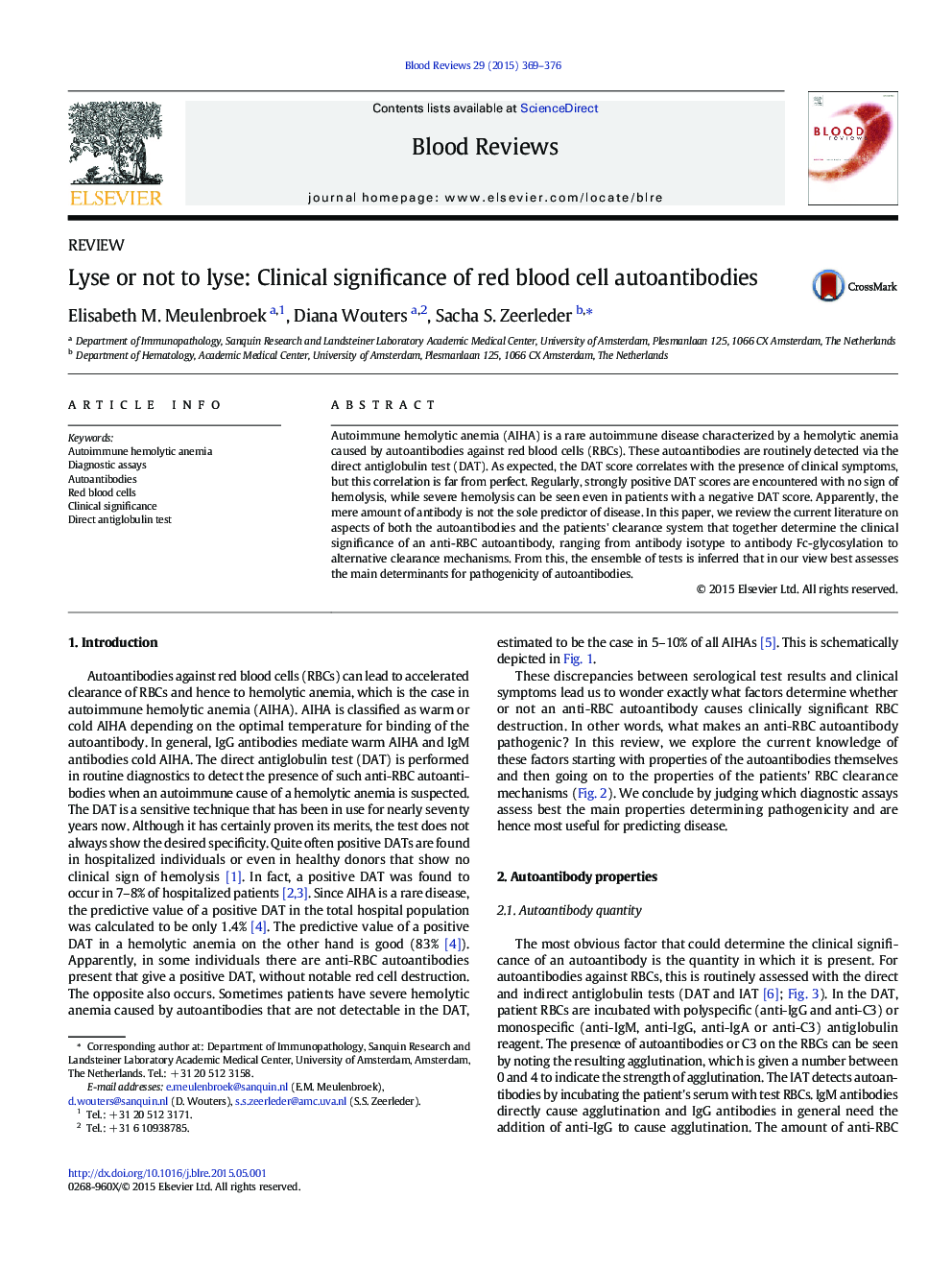| Article ID | Journal | Published Year | Pages | File Type |
|---|---|---|---|---|
| 2106099 | Blood Reviews | 2015 | 8 Pages |
Autoimmune hemolytic anemia (AIHA) is a rare autoimmune disease characterized by a hemolytic anemia caused by autoantibodies against red blood cells (RBCs). These autoantibodies are routinely detected via the direct antiglobulin test (DAT). As expected, the DAT score correlates with the presence of clinical symptoms, but this correlation is far from perfect. Regularly, strongly positive DAT scores are encountered with no sign of hemolysis, while severe hemolysis can be seen even in patients with a negative DAT score. Apparently, the mere amount of antibody is not the sole predictor of disease. In this paper, we review the current literature on aspects of both the autoantibodies and the patients' clearance system that together determine the clinical significance of an anti-RBC autoantibody, ranging from antibody isotype to antibody Fc-glycosylation to alternative clearance mechanisms. From this, the ensemble of tests is inferred that in our view best assesses the main determinants for pathogenicity of autoantibodies.
